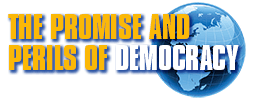Could there be a “left moment” in American politics? In a new article, CUNY political scientist Corey Robin and co-author Alex Gourevitch argue that the left, despite some momentum, is lacking an overarching ideological claim. That claim, they propose, could be freedom. In their opinion, the left should make an attempt at semantic ownership of a concept that, for at least the last forty years, has been primarily defined by the political right as something to be found in the marketplace. Freedom, in that conception, is defined by the absence of government intervention into the actions of individuals. The promise of this kind of freedom is both the individual and the collective maximization of utility, where “maximization” is understood, at the individual level, as pareto improvements, i.e. the increase in utility for at least one individual, as long as nobody else is being made worse off.
Gourevich and Robin, on the other hand, conceptualize freedom as something that is the antithesis of the “problem that an increasing number of people face today: systemic unfreedom in the neoliberal economy.” (p. 386). The authors identify two sources of un-freedom – the hierarchical organization of the workplace and the permeating force of market logic into all aspects of live. While this may seem contradictory (after all, if more aspects of life are subject to the logic of the market, the individual should find more room to evade hierarchical control), the authors contend that “The subordination of workers to employers, with the attendant coercion, is the way that a capitalist economy works” (p.389), concluding that “one of the greatest sources of unfreedom today is the economy itself.” (p. 391).
How can these unfreedoms be overcome? Gourevich and Robin suggest that the left start with “work” as the main locus of political action. Worker self-organization and self-determination in the workplace could open an avenue for sharpening freedom as an ideological weapon in the political arsenal of the left. In addition, and maybe more importantly, it would free people from the hierarchical organization of the workplace.
However, in the authors’ view, this cannot be the end of the left’s endeavors, for “[…] truly free and equally available free time for everyone requires collective, democratic intervention at a broader level, through a restructuring of the economy as a whole.” (p. 396).
The authors remain vague in what a “freedom program” could actually look like and they admit to it (p. 397). It is therefore unclear whether they envision a system of worker co-determination (as, for example, in Germany, where labor union representatives are on the board of major corporations) or some more fundamental “restructuring of the economy as a whole”, for example by way of collectivizing or nationalizing corporations. But it is clear that political freedom cannot be separated from economic freedom and that, for the left, the relationship of the two cannot be cast in Hayekian terms. Whether a new conceptualization of “freedom” is indeed a useful tool in the struggles of the left remains to be seen.
